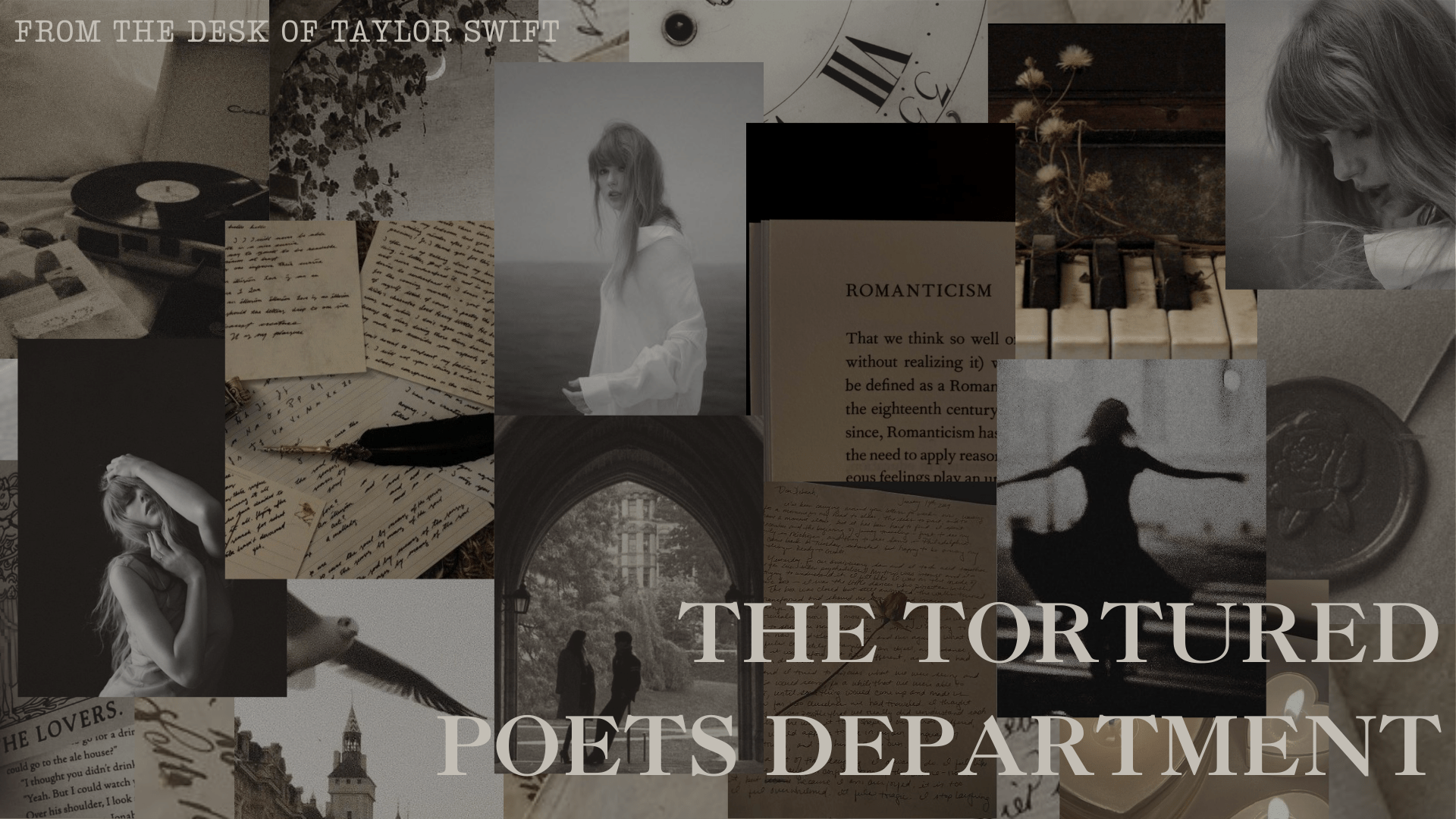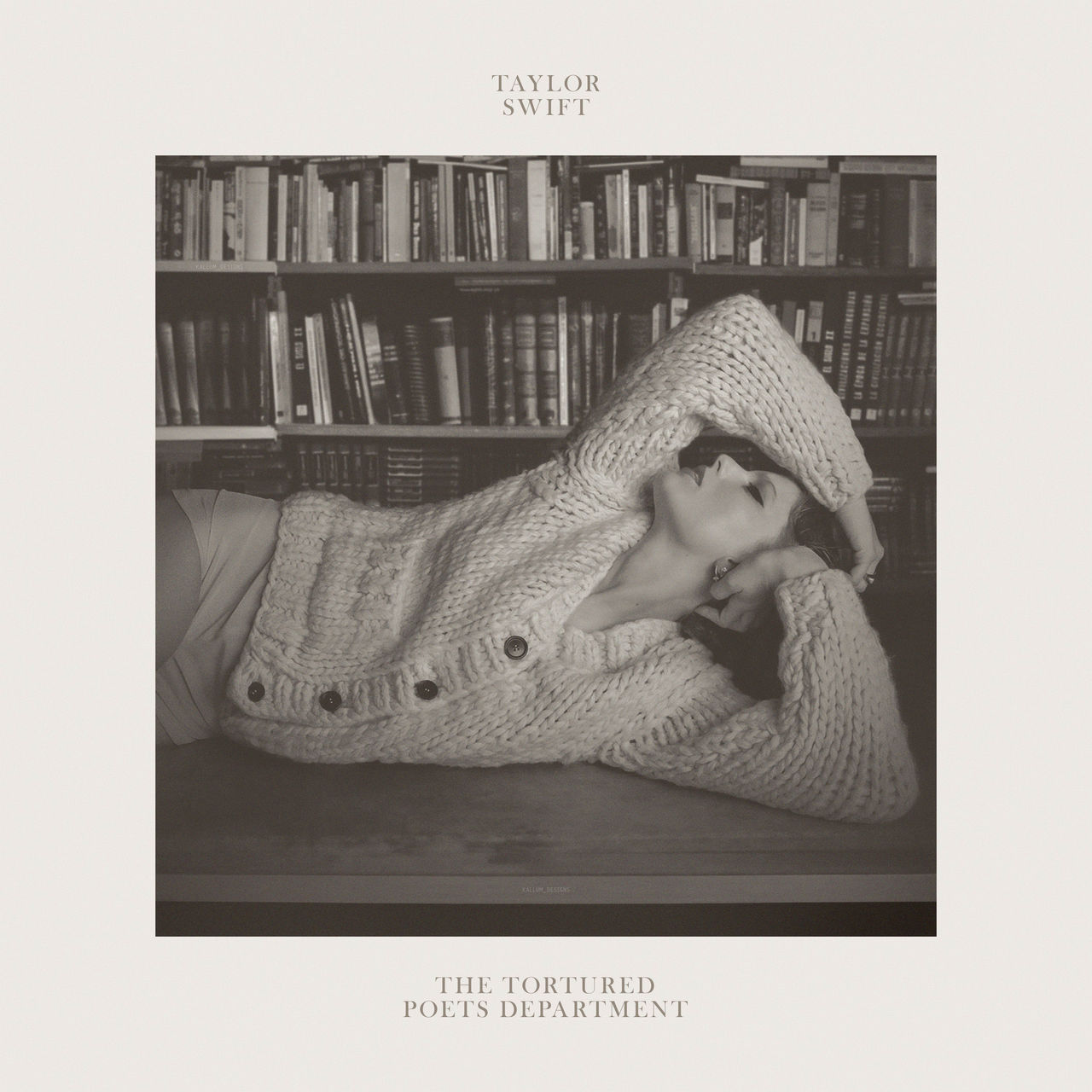The Tortured Poets Department: A Deep Dive Into The World Of Creative Suffering
There’s something oddly beautiful about the idea of a “tortured poet.” It’s a phrase that conjures up images of dark, candlelit rooms where words flow like rivers of pain and longing. But what exactly is the tortured poets department, and why does it resonate so deeply with so many of us? If you’ve ever felt like your soul is screaming through your pen, you’re not alone. This article dives into the heart of this poetic phenomenon, exploring its roots, impact, and the timeless allure of creative suffering.
Let’s face it, poetry has always been more than just words on a page. It’s a reflection of the human condition, a mirror to our deepest joys and sorrows. The tortured poets department isn’t just a metaphor; it’s a real space where artists channel their pain into something extraordinary. In this article, we’ll explore how this idea has shaped literature, inspired generations, and why it continues to captivate readers today.
Before we dive in, let me ask you a question: Have you ever felt like your best work comes when you’re at your lowest? That’s the essence of the tortured poet. This article will break down the concept, offering insights, tips, and even a few laughs along the way. So grab your favorite notebook and let’s get started!
- Jake Cherry The Rising Star In Music And Beyond
- Lenny Kravitz Daughter The Rising Star In Music And Beyond
What Exactly Is the Tortured Poets Department?
Let’s start with the basics. The tortured poets department isn’t a physical place, though it might as well be. Think of it as a mental space where poets retreat when life gets heavy. It’s that moment when you’re sitting alone, staring out a rain-soaked window, and suddenly the words start flowing. You’re not just writing; you’re pouring your soul onto the page.
Now, here’s the thing: being a tortured poet doesn’t mean you have to be miserable all the time. Sure, pain can be a powerful muse, but so can love, joy, and even absurdity. The key is finding that raw emotion and turning it into art. In this section, we’ll explore the origins of the term and how it has evolved over time.
Historical Roots of Tortured Poetry
Believe it or not, the idea of tortured poets has been around for centuries. From ancient Greek bards to modern-day slam poets, the tradition of channeling pain into poetry is timeless. Take a look at some of the greats: Sylvia Plath, Edgar Allan Poe, and Charles Bukowski. These poets didn’t just write about their struggles; they lived them.
- Dominican Republic Flight Death The Tragic Truths Unveiled
- Cathleen Lyons The Rising Star Whos Redefining Success In The Entertainment World
- Sylvia Plath: Known for her deeply personal and often dark poetry, Plath’s work continues to inspire readers worldwide.
- Edgar Allan Poe: A master of gothic horror, Poe’s poems like “The Raven” remain iconic examples of tortured expression.
- Charles Bukowski: With his gritty, raw style, Bukowski captured the struggles of everyday life in a way that resonated with readers.
These poets, among many others, helped shape the idea of the tortured poet as we know it today. But why does this concept continue to captivate us?
Why Does Tortured Poetry Resonate So Deeply?
There’s something about pain that makes it universally relatable. Whether it’s heartbreak, loss, or existential dread, we’ve all been there. Tortured poetry speaks to that shared experience, offering both solace and understanding. It’s like having a conversation with someone who gets it, even if they’re long gone.
But it’s not just about feeling understood. Tortured poetry also challenges us to confront our own emotions. It forces us to look deeper, to question why we feel the way we do. In a world that often encourages us to suppress our feelings, this kind of poetry is a powerful reminder that it’s okay to be vulnerable.
How Pain Becomes Poetry
So, how exactly does pain transform into poetry? It’s a process that varies from person to person, but there are a few common threads. First, there’s the raw emotion. Whether it’s anger, sadness, or frustration, these feelings act as the fuel that drives the creative process. Then comes the reflection. This is where the poet takes a step back and examines their emotions, trying to make sense of them.
Finally, there’s the act of creation itself. This is where the magic happens. Words are chosen carefully, each one carrying the weight of the poet’s experience. The result is a piece of art that not only expresses the poet’s pain but also connects with readers on a profound level.
The Benefits of Being a Tortured Poet
Now, I know what you’re thinking: “Benefits? How can something as painful as this have benefits?” Well, let me tell you, there are plenty. For starters, writing poetry can be incredibly therapeutic. It’s a way to process your emotions and gain a sense of control over them. Plus, there’s the satisfaction of creating something beautiful from something painful.
But the benefits don’t stop there. Being a tortured poet can also help you develop a unique voice and perspective. In a world full of noise, having something original to say can set you apart. And let’s not forget the sense of community that comes with being part of the tortured poets department. There’s something incredibly powerful about knowing you’re not alone in your struggles.
Building Resilience Through Poetry
One of the most surprising benefits of being a tortured poet is the resilience it can build. By confronting and expressing your pain, you’re essentially learning how to cope with it. This can lead to greater emotional strength and a more positive outlook on life. Plus, every time you write a poem, you’re proving to yourself that you can turn something negative into something positive.
Think about it this way: every poem you write is like a battle scar. It’s a testament to your survival, a reminder that you’ve made it through another day. And who knows? Maybe one day, someone else will read your words and find the strength to keep going too.
Common Misconceptions About Tortured Poets
Before we go any further, let’s address some of the common misconceptions about tortured poets. First and foremost, not all poets are tortured. While pain can be a powerful muse, it’s not the only source of inspiration. Some of the greatest poets in history wrote about love, nature, and even humor. So, if you’re feeling happy, don’t worry—your poetry can still be amazing.
Another misconception is that tortured poets are inherently tragic figures. While some poets have faced incredible challenges, others have found joy and fulfillment in their work. The key is finding balance. Pain can be a muse, but it doesn’t have to define you.
The Myth of the “Mad Genius”
One of the most persistent myths about tortured poets is the idea of the “mad genius.” This stereotype suggests that creativity and mental illness go hand in hand. While it’s true that some poets have struggled with mental health issues, it’s important to remember that this is not the norm. In fact, many poets lead happy, healthy lives while still producing incredible work.
So, if you’re worried that being a tortured poet means you have to be miserable all the time, rest assured that’s not the case. You can be both creative and content. It’s all about finding what works for you and embracing your unique voice.
How to Join the Tortured Poets Department
So, you want to join the ranks of the tortured poets? Great! But where do you start? The first step is to embrace your emotions. Whether you’re feeling happy, sad, or somewhere in between, let those feelings guide your writing. Don’t be afraid to explore the depths of your soul, even if it’s scary.
Next, practice regularly. Like any skill, poetry takes time and effort to master. Set aside time each day to write, even if it’s just for a few minutes. You’d be surprised how much you can accomplish in a short amount of time. And don’t forget to read widely. The more you expose yourself to different styles and voices, the richer your own poetry will become.
Tools and Resources for Aspiring Poets
Of course, no journey is complete without the right tools. Here are a few resources that can help you on your poetic journey:
- Poets.org: A treasure trove of poetry resources, including tips, prompts, and a vast archive of poems.
- National Poetry Month: Celebrated every April, this event offers a great opportunity to connect with other poets and share your work.
- Billy Collins MasterClass: A fantastic resource for learning from one of the most beloved poets of our time.
With these tools at your disposal, you’ll be well on your way to becoming a member of the tortured poets department.
Overcoming Writer’s Block
Let’s face it, every poet struggles with writer’s block at some point. It’s that moment when the words just won’t come, no matter how hard you try. But don’t worry, it happens to the best of us. The key is finding ways to overcome it.
One effective strategy is to change your environment. Sometimes, all it takes is a change of scenery to spark creativity. Another option is to try a different form of writing. If poetry isn’t working, try journaling or even drawing. The goal is to keep your creative muscles active, even if you’re not producing poetry.
Embracing Imperfection
Another way to overcome writer’s block is to embrace imperfection. Let go of the idea that every poem has to be a masterpiece. Sometimes, the best poems come from letting go and allowing yourself to be vulnerable. Remember, it’s the process that matters, not the end result.
And if all else fails, take a break. Sometimes, the best thing you can do is step away for a while and let your mind rest. When you come back, you might find that the words flow more easily than ever before.
The Future of Tortured Poetry
As we look to the future, it’s clear that tortured poetry will continue to evolve. With new technologies and platforms emerging, poets have more opportunities than ever to share their work with the world. Social media, for example, has made it easier than ever to connect with readers and other poets.
But what does the future hold for the tortured poets department? Will it remain a space for those who channel their pain into art, or will it expand to include new forms of expression? Only time will tell, but one thing is certain: as long as humans experience pain and joy, there will always be a place for poetry.
Staying Relevant in a Changing World
To stay relevant in today’s fast-paced world, poets need to be adaptable. This means embracing new technologies and platforms while staying true to their unique voice. Whether it’s through social media, podcasts, or even virtual reality, there are countless ways to reach new audiences and share your work.
So, if you’re a poet looking to make a mark in the digital age, don’t be afraid to experiment. Try new things, take risks, and most importantly, keep writing. The world needs your voice now more than ever.
Conclusion
In conclusion, the tortured poets department is more than just a concept; it’s a way of life. It’s a space where pain becomes poetry, where vulnerability becomes strength, and where creativity knows no bounds. Whether you’re a seasoned poet or just starting out, there’s a place for you in this vibrant community.
So, what are you waiting for? Grab your pen, find your voice, and join the ranks of the tortured poets. Remember, every word you write has the power to change someone’s life, including your own. And if you enjoyed this article, don’t forget to share it with your fellow poets. Together, we can keep the tradition of tortured poetry alive for generations to come.
Table of Contents
- What Exactly Is the Tortured Poets Department?
- Historical Roots of Tortured Poetry
- Why Does Tortured Poetry Resonate So Deeply?
- The Benefits of Being a Tortured Poet
- Common Misconceptions About Tortured Poets
- How to Join the Tortured Poets Department
- Overcoming Writer’s Block
- The Future of Tortured Poetry
- Staying Relevant in a Changing World
- Conclusion



Detail Author:
- Name : Dr. Nettie Macejkovic Sr.
- Username : ueichmann
- Email : katheryn.oreilly@yahoo.com
- Birthdate : 1995-12-31
- Address : 42347 Streich Parks Skyetown, CO 36926
- Phone : +1 (580) 822-5804
- Company : Stiedemann, Lynch and Kihn
- Job : Petroleum Pump System Operator
- Bio : Beatae ut aut fugiat molestiae. Quia dolor ex molestiae aspernatur dolor id optio velit. Ut hic accusantium officiis qui ut fugiat. Cupiditate ad quaerat magni iure.
Socials
linkedin:
- url : https://linkedin.com/in/beerc
- username : beerc
- bio : Perspiciatis veritatis sed qui.
- followers : 2660
- following : 1473
twitter:
- url : https://twitter.com/cierra_beer
- username : cierra_beer
- bio : Velit ut ipsa quis dolorem odit eligendi perferendis. Delectus labore rerum adipisci exercitationem iste impedit dignissimos.
- followers : 3522
- following : 2124